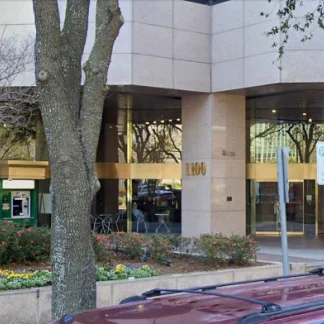Addiction Recovery Resources
Addiction Recovery Resources, Inc. - Canal Street offers a full continuum of car...
ExecuCare Addiction Recovery Center utilizes a science-based approach to addiction with nutrition-assisted detox and innovative coaching program that doesn't use drugs to get off drugs. ExecuCare Addiction Recovery Center is located in New Orleans, Louisiana.
NTR Brain Restoration utilizes NAD Therapy to detox, restore and optimize the body at a cellular level. It is a drug-free formula of amino acids, vitamins, minerals and co-factors. This formula works to repair the damage done to the brain as a result of chronic use of drugs and alcohol.
ExecuCare’s 10-day, natural Neurotransmitter Restoration protocol allows clients to detox in a relatively short amount of time. Their r private, outpatient program preserves their clients’ privacy. And they give them the option to work from the center while undergoing treatment.
Contact us for more information: (770) 817-0711

Connect with ExecuCare Addiction Recovery Center by calling their admissions team directly.
(770) 817-0711 Website Get DirectionsGroup therapy is any therapeutic work that happens in a group (not one-on-one). There are a number of different group therapy modalities, including support groups, experiential therapy, psycho-education, and more. Group therapy involves treatment as well as processing interaction between group members.
In individual therapy, a patient meets one-on-one with a trained psychologist or counselor. Therapy is a pivotal part of effective substance abuse treatment, as it often covers root causes of addiction, including challenges faced by the patient in their social, family, and work/school life.
NAD Therapy is administered intravenously over the course of 4-10 days. It is a drug-free formula that utilizes nicotinamide adenine dinucleotide (NAD), amino acids, vitamins, minerals and co-factors to detox, restore and optimize the body at a cellular level. NAD Therapy is followed by FastVitaminIV™, a cutting-edge, fast-push IV technology of vitamins, administered over 2-3 minutes that elevates energy, increases mental clarity and enhances vitality.
Trauma therapy addresses traumatic incidents from a client's past that are likely affecting their present-day experience. Trauma is often one of the primary triggers and potential causes of addiction, and can stem from child sexual abuse, domestic violence, having a parent with a mental illness, losing one or both parents at a young age, teenage or adult sexual assault, or any number of other factors. The purpose of trauma therapy is to allow a patient to process trauma and move through and past it, with the help of trained and compassionate mental health professionals.
In individual therapy, a patient meets one-on-one with a trained psychologist or counselor. Therapy is a pivotal part of effective substance abuse treatment, as it often covers root causes of addiction, including challenges faced by the patient in their social, family, and work/school life.
NAD Therapy is administered intravenously over the course of 4-10 days. It is a drug-free formula that utilizes nicotinamide adenine dinucleotide (NAD), amino acids, vitamins, minerals and co-factors to detox, restore and optimize the body at a cellular level. NAD Therapy is followed by FastVitaminIV™, a cutting-edge, fast-push IV technology of vitamins, administered over 2-3 minutes that elevates energy, increases mental clarity and enhances vitality.
Trauma therapy addresses traumatic incidents from a client's past that are likely affecting their present-day experience. Trauma is often one of the primary triggers and potential causes of addiction, and can stem from child sexual abuse, domestic violence, having a parent with a mental illness, losing one or both parents at a young age, teenage or adult sexual assault, or any number of other factors. The purpose of trauma therapy is to allow a patient to process trauma and move through and past it, with the help of trained and compassionate mental health professionals.
NAD Therapy is administered intravenously over the course of 4-10 days. It is a drug-free formula that utilizes nicotinamide adenine dinucleotide (NAD), amino acids, vitamins, minerals and co-factors to detox, restore and optimize the body at a cellular level. NAD Therapy is followed by FastVitaminIV™, a cutting-edge, fast-push IV technology of vitamins, administered over 2-3 minutes that elevates energy, increases mental clarity and enhances vitality.
Trauma therapy addresses traumatic incidents from a client's past that are likely affecting their present-day experience. Trauma is often one of the primary triggers and potential causes of addiction, and can stem from child sexual abuse, domestic violence, having a parent with a mental illness, losing one or both parents at a young age, teenage or adult sexual assault, or any number of other factors. The purpose of trauma therapy is to allow a patient to process trauma and move through and past it, with the help of trained and compassionate mental health professionals.
Trauma therapy addresses traumatic incidents from a client's past that are likely affecting their present-day experience. Trauma is often one of the primary triggers and potential causes of addiction, and can stem from child sexual abuse, domestic violence, having a parent with a mental illness, losing one or both parents at a young age, teenage or adult sexual assault, or any number of other factors. The purpose of trauma therapy is to allow a patient to process trauma and move through and past it, with the help of trained and compassionate mental health professionals.
Addiction Recovery Resources, Inc. - Canal Street offers a full continuum of car...
CCYADF is a private rehab located in New Orleans, Louisiana. CCYADF specializes ...
Higher Expectations Awareness Program is a private rehab located in New Orleans,...
ACER provides individualized client care in a healthy, non-judgmental environmen...